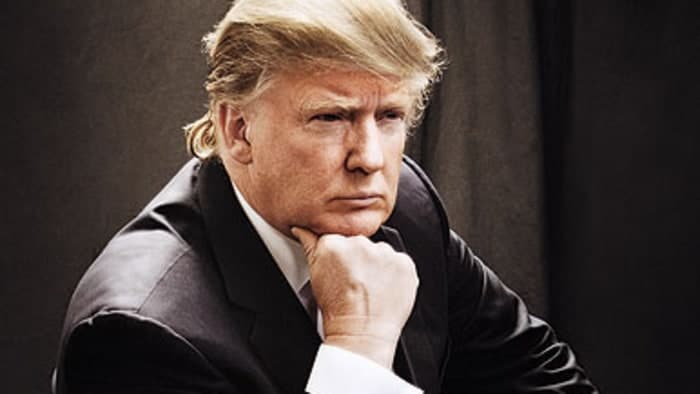Trump’s aversion to reading leads to chaotic foreign policy, dismissal of advisors
Developments on Day 359 of the Trump Administration:
Trump’s Preference for Pictures
As Donald Trump hosts French President Emmanuel Macron in Washington — with discussion expected to include Trump’s threat to withdraw from the Iran nuclear deal — The New Yorker publishes an
exposé of the President’s limited ability to read and comprehend, with subsequent consequences for foreign policy.
Patrick Radden Keefe reports from multiple sources, including inside the White House. He begins with the comment of a “senior Administration official” that Trump is “not a voracious reader”. This soon expands to sharper accounts:
When Trump assumed office, NSC [National Security Council] staffers initially generated memos for him that resembled those produced for his predecessors: multi-page explications of policy and strategy. But “an edict came down,” a former staffer told me: “ ‘Thin it out.’” The staff dutifully trimmed the memos to a single page. “But then word comes back: ‘This is still too much.’ ” A senior Trump aide explained to the staffers that the President is “a visual person”, and asked them to express points “pictorially”.
“By the time I left, we had these cards,” the former staffer said. They are long and narrow, made of heavy stock, and emblazoned with the words “the white house” at the top. Trump receives a thick briefing book every night, but nobody harbors the illusion that he reads it. Current and former officials told me that filling out a card is the best way to raise an issue with him in writing. Everything that needs to be conveyed to the President must be boiled down, the former staffer said, to “two or three points, with the syntactical complexity of ‘See Jane Run’”.
Last month Trump’s read-little approach was amplified by his impulse to go off-script in US foreign policy. With Trump due to call Russian counterpart Vladimir Putin, who had just won re-election with 76% of the vote in a widely-questioned ballot, the President had a briefing book for guidance. If Trump did not read any of the analysis, he at least was advised on a card, “DO NOT CONGRATULATE”.
Trump called and immediately congratulated Putin.
The New Yorker profile adds another important dimension with Trump’s propensity to dismiss advisors who may be too “intellectual”. It describes how he grew weary of National Security Advisor H.R. McMaster, a former general and author known for his analytic grasp.
Stories circulated for months that Trump was ready to jettison the advisor, despite the President’s admiration for military men. Soon after the Putin phone call, McMaster was gone. He was replaced by former US Ambassador to the UN John Bolton, whom Trump admired for Bolton’s combative appearances on Fox TV.

